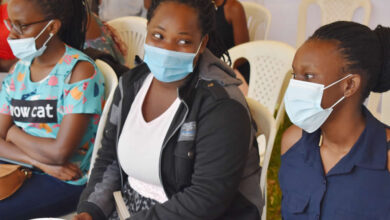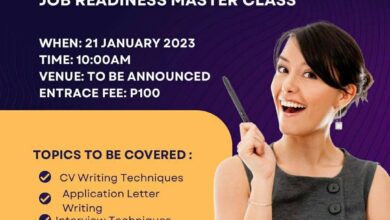“It is not just about what people can do, but also about the values and so-called softer skills” That will set you apart

The clock is now ticking apace for Botswana’s Form 5 Class of 2019, who won’t only face the two most important exams of their lives so far when they head back to school, but who will also need to pin down their study options for next year without delay.
Although it is already quite late in the day, learners are still encouraged not to rush the decision about what they want to study and where they want to do so, but to get down to the business of sifting with determination, armed with a list of their non-negotiable requirements for their future institution of higher learning, an education expert advises.
“If you’ve been putting off the admittedly hard work of investigating all your options, going to campuses and asking the tough questions, speaking to current students and student advisors and so forth, this is our reminder to you that time is running out and that you need to sort out your study options in coming weeks,” says Dr Felicity Coughlan, Director of The Independent Institute of Education, SA’s largest private higher education provider.
“Don’t leave it until later in the year, because the stress and workload associated with preparing for exams will be taking up all your physical and mental energy down the line, and you don’t want to be in a situation where you have to settle for second best either in terms of institution or in terms of your degree programme because you put things off for too long,” she says.
But now, more than ever before, prospective students need to scratch below the surface, because an individual’s choice about institution and programme is likely to have future consequences that may not yet be apparent.
In particular, learners need to evaluate how an institution incorporates ethics and sustainability, as well as citizenship into their curricula.
“The world is changing and evolving, and across the globe there is a major movement towards demanding more than just technical proficiency in the workplace,” says Coughlan.
“This is why progressive institutions are increasingly paying attention not just to the theoretical aspects of curricula, but also on developing the young people in their care holistically to be able to join society post-graduation as well-rounded individuals who are able to make a contribution beyond what they are able to bring in terms of subject expertise.”
Coughlan says employers and companies are often reluctant to employ recent graduates without a proven track record, because their focus during studies was exclusively on academics and scoring well on assessments and exams, rather than also developing holistic skill sets which allow them to operate effectively in the workplace, through work-integrated learning.
“When speaking to career advisors at public universities and private institutions, you must therefore interrogate how much they understand about the challenges in today’s world of work, but also whether they have considered and responded to likely challenges of the future. In particular, and in your chosen field, have they considered how rapid technological advancement may impact on your ability to remain relevant into the future?
“It is not just about what people can do, but also about the values and so-called softer skills such as a commitment to lifelong learning and resilience they have internalised during their studies. For an institution to claim that it goes above and beyond very necessary academic excellence, they also need to be able to tell you about their big picture vision.”
Coughlan says there are lots of messages about careers changing and people needing to prepare for jobs of the future, but that if an institution can prove that they understand and take macro issues seriously, it is likely they will be turning out well-equipped and well-rounded graduates.
“So yes, marketing materials are a great start to determine whether a higher education institution takes ethics, sustainability and citizenship seriously. But the proof is found beyond that – and it can only be established by measuring the promise of the marketing against what you see when you walk around on the campus and interview students, support staff and academics,” says Coughlan.
“The decision about what to study and where is one of the most important choices you will ever make, and you need to ensure that you are absolutely comfortable in the knowledge that what you will be learning over the next three to four years will provide you with more than technical knowledge. Preparing students to be resilient with an arsenal of skills that will future-proof their careers means that good institutions can and must impart skills beyond the curriculum, and Matrics will do well to make a call on an institution’s ability to do so before committing in writing.”





